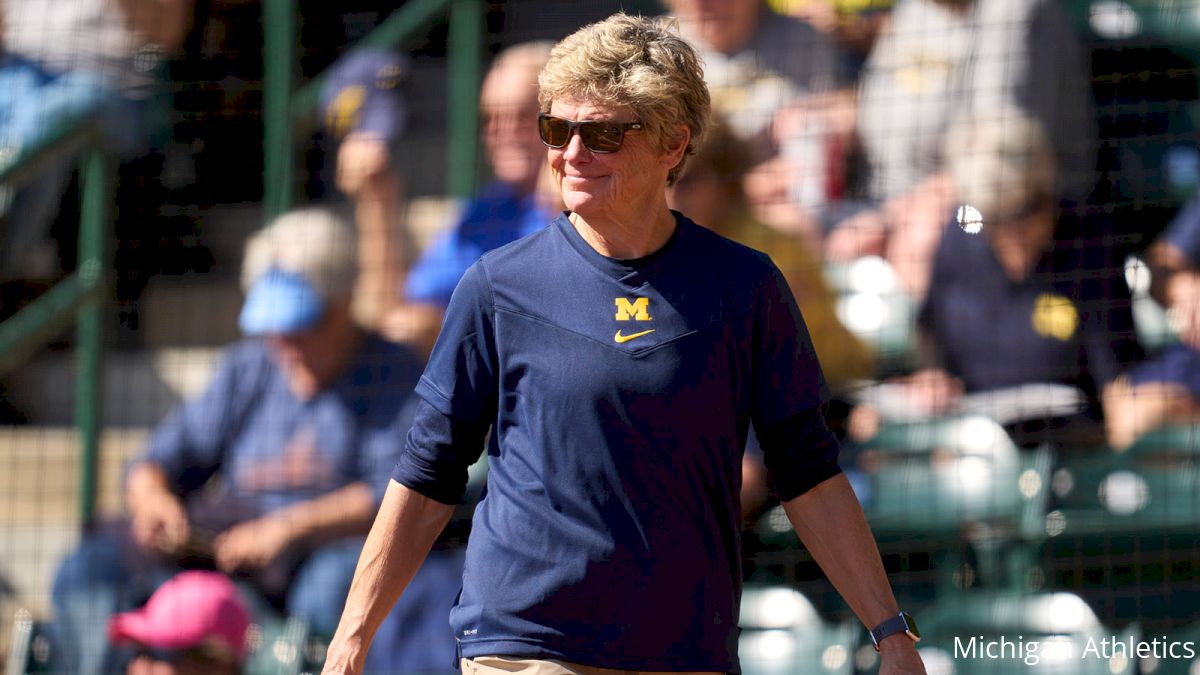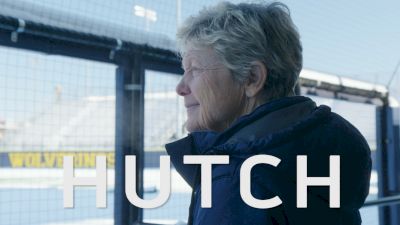Women's Athletics Pioneer, Coaching Legend Carol Hutchins Retires
Women's Athletics Pioneer, Coaching Legend Carol Hutchins Retires
Hutchins' contributions to women's athletics, coaching and softball are unparalleled.

An icon of college softball has called an end to her illustrious career.
Carol Hutchins, the head coach of Michigan since 1985 who most notably helped lead the Wolverines to a national championship in 2005, announced her retirement from the UM dugout Wednesday following a legendary run as one of the sport’s all-time great coaches—winning an NCAA-record 1,707 games in her career.
Hutchins is a trailblazer in women's athletics, bringing equity and attention to female sports, notably before she even became a coach.
A former player and longtime assistant under Hutchins, Bonnie Tholl, was named as Michigan’s new head coach following the announcement.
Hutchins penned a long statement released by the university in which she expressed many thanks for the people and figures that stood by her throughout the nearly four decades she spent as Michigan’s head coach.
"I am most thankful for the relationships that this sport has given me,” Hutchins said.
“I want to express my respect for and admiration to all of my coaching colleagues and rivals, as the competition has made softball one of the greatest sports in college athletics. I thank everyone who has ever served in a support role for Michigan softball, from our athletic trainers and strength coaches to academic counselors, equipment managers, field crew, and the list goes on. They have contributed greatly to our success, and their commitment is so appreciated.”
Hutchins effect on women's athletics cannot be quantified. While she was a student-athletics Hutchins brought a lawsuit against her school, Michigan State, advocating for improved conditions and equal treatment of female athletics, as compared to the male counterparts. She won in a landmark case and was hired as coach of Michigan's softball head coach the following year.

The 18-time Big Ten Coach of the Year, two-time NFCA National Coach of the Year and winner of 22 Big Ten regular-season titles, first came to Michigan as an assistant under Bob DeCarolis in 1983 following a year as the head coach at Division II Ferris State.
Nicknamed “Hutch,” she got her break as the head coach of the Wolverines in 1985, to which Michigan softball never finished a season with a losing record from then to the end of her tenure. Numerous superstars of the sport passed through her program—such as former National Player of the Year Sierra Romero and Olympian Amanda Chidester—but no team is more synonymous with success in Michigan softball history than the 2005 team.
The Wolverines that year became the first college softball team east of the Mississippi River to win a national title since the NCAA began holding a national softball tournament in 1982. It was one of 12 Women’s College World Series appearances for Hutchins in her tenure, additionally leading Michigan to a runner-up finish in 2015.
Hutchins had briefly lost her title as the sport’s winningest coach after being passed by legendary Arizona coach Mike Candrea, but she reclaimed the top spot earlier this year following his retirement after the 2021 season.
“Words can not adequately describe my appreciation for all that Carol Hutchins has done for the University of Michigan, the sport of softball, nor for the impact she has had on the lives of countless young people," said Michigan athletic director Warde Manuel in the release.
"I also cannot succinctly articulate my personal sadness at her decision to retire from coaching while being so happy that Hutch can enjoy life beyond the game.”
Hutchins is an NFCA Hall of Famer and leaves after having taken the Wolverines to their 27th consecutive NCAA Tournament this past season, with Michigan eliminated in the Orlando Regional following two defeats to host UCF.
Oklahoma coach Patty Gasso is now the nation’s active leader in wins with 1,395 victories to her name at the NCAA level, not counting her time spent coaching at the junior college level prior to leading the Sooners.